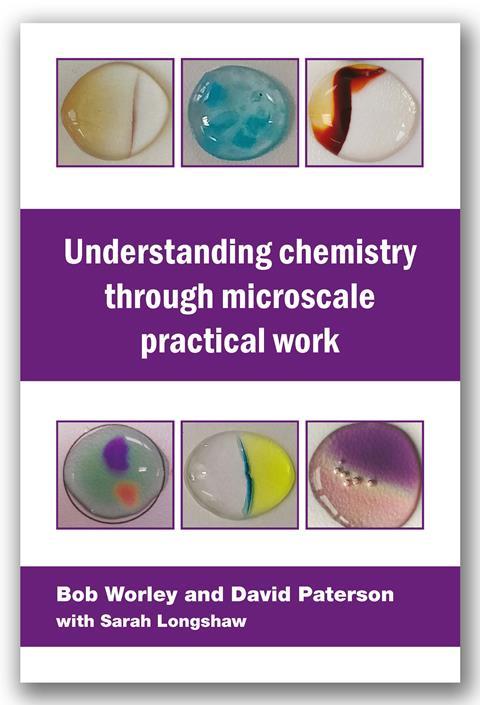A comprehensive guide to this small-scale approach to classroom chemistry experiments

Bob Worley and David Paterson with Sarah Longshaw (editor)
Association for Science Education
2022 | 120 pages | £25
ISBN: 978-0863574788
Finding resources on microscale chemistry can take some hunting around. The RSC produced a book by John Skinner in 1998 which was sent to every school in the UK; most of it is also on the RSC Education website. Since then, there have been microscale chemistry meetings, articles and webinars, and a wealth of resources is now available online. An updated comprehensive publication with descriptions of microscale techniques was probably long overdue and now at last here it is. Understanding chemistry through microscale practical work is a guide for all educators, regardless of experience.
The introduction discusses the benefits of using a microscale approach in terms of cost, safety and time. The availability and use of visualisers and smartphones have helped to address the criticism that microscale chemistry can’t be easily demonstrated. Indeed, I think it has been a game changer in inspiring teachers to see and try these methods.
The chapters cover fundamental topics such as chemical reactions, particles, quantitative chemistry titration, reaction rates and electrochemistry. The experiment procedures are clearly explained, and colour figures and images demonstrate the equipment set-up and results. The make-it guides for some of the equipment mentioned in the book require a CLEAPSS subscription to view, which may be an issue for readers that do not have access.
The authors make convincing points about how microscale techniques can enhance student focus
Readers are encouraged to develop and innovate the practical work described, with each chapter including a teacher activity section. I liked this feature as it will help teachers tailor these activities according to their course demands and resources.
As well as giving practical procedures to do, the authors discuss strategies to help students overcome barriers to understanding the chemistry being taught, as well as the relevance of it to their lives. Most of the chapters begin with an overview of the concepts and a suggested teaching sequence, along with a diagram with exemplifications of Johnstone’s triangles showing how the concepts are presented in the macroscopic, sub-microscopic and symbolic domains.
See microscale in action
Among RSC Education’s free online events, you’ll often find some sessions on microscale techniques. Keep eye on the events page for the next sessions.
Pedagogy is discussed throughout the book. While a lot of experiments have a wow factor (my favourites are the transition metal precipitates formed in a drop), the book is a teaching guide rather than a collection of experiments. The authors make convincing points about how microscale techniques can enhance student focus during practical work by reducing load on working memory and help students understand challenging chemical concepts.
The final chapter focuses on sustainability and discusses how microscale techniques are relevant to the principles of green chemistry, such as reducing waste. This is an important consideration if we want to pass on these principles to our students.
A teacher from the US is quoted, saying: ‘In a little you can see a lot!’ The same could be said of this excellent publication: in this little book you can learn a lot about microscale chemistry.
Purchase Understanding chemistry through microscale practical work from Amazon.
Suggested further reading
Assistant editor for Education resources and former science teacher Kirsty Patterson recommends:
- Author David Paterson explaining Why I love microscale and the importance of using traditional methods alongside microscale techniques to provide ‘rich variety’ while ensuring students are fully prepared for assessments.
- This examination of how to make practical work more effective.
- Finding out more about using integrated instructions alongside microscale techniques to reduce cognitive load.
- This one-stop guide to microscale practical work.









No comments yet